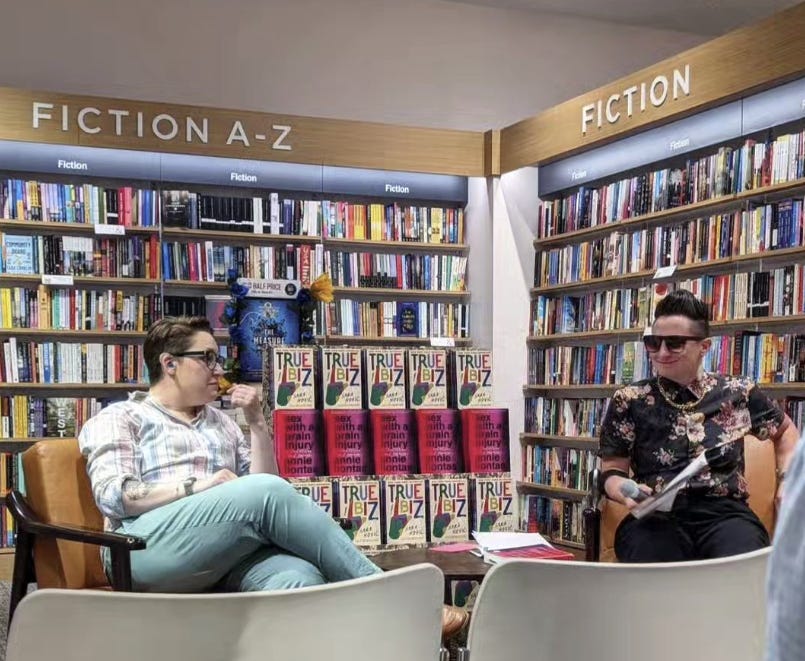Inclusion for me, but not for thee
Once upon a time, hearing people believed that they had checked off their diversity box and ascended beyond discrimination…
Every semester, I teach a Deaf Studies class that covers the basics—the history, physiology, socio-linguistics, education, and art and literature of deaf people in a kind of crash course. And every semester, somewhere along the way, my students get stuck in a time warp. “It’s terrible that deaf people were once discriminated against,” is a version of things they say a lot, as if audism were just another black and white photo of Helen Keller, or a villain from a fairy tale And while it’s true that in many ways discrimination against deaf and disabled people has improved across the global North, inclusion and access are not checkboxes we can just tick off. Access is a living, continuous need. So, in honor of my students, I present with some recent deaf fairy tale villains:
Once upon a time, my Good Author Friend* and I decided we wanted to do an event together, and reached out to Corporate Bookstore in our city. When GAF made contact, they said they’d be delighted to host us, and started making plans. When we requested an interpreter, they said they could not provide one. Maybe, they said, GAF should just come by themselves. Being a badass ally, did the legwork to procure an outside interpreter.
Except, the day before, volunteer interpreter ghosted. We ended up hiring and agreeing to pay out of pocket for the interpreter at our event. Very luckily, a star one was willing and able to work on such short notice. The event went well. Deaf and disabled folks saw themselves in our work. Corporate Bookstore posted on their Instagram about how our conversation was a beacon of access and inclusion.
ID: Sara and Good Author Friend sit at Corporate Bookstore discussing their work, made possible by an interpreter standing just out of frame. Bookshelves in background.
*Annie is a complete badass. Buy their book and also check out this killer Atlantic piece from this week: T at 42.
Keep reading with a 7-day free trial
Subscribe to signs + wonders to keep reading this post and get 7 days of free access to the full post archives.



